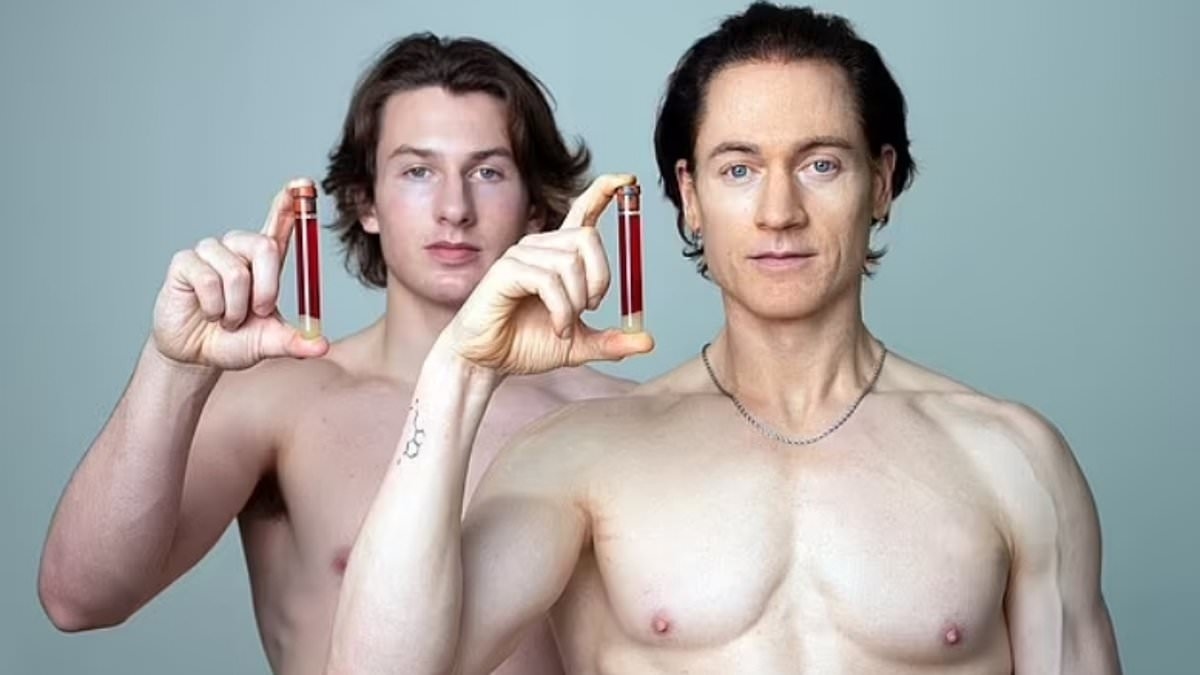Explosive meltdowns and divorce: My childhood ADHD drug was the gateway to a crippling 15-year addiction to Adderall

Published: | Updated:
At just 12 years old, Isabel Johnson was medicated to treat what doctors suspected was attention-deficit/hyperactivity disorder, otherwise known as ADHD.
She was prescribed Vyvanse, a stimulant that improves focus and slows hyperactivity that she claimed was billed as a 'new' drug that wasn't 'as addictive' or 'easily abused.'
But what started as a way to help her excel in school eventually spiraled into a crippling 15-year addiction to another ADHD drug: Adderall.
Johnson, who now runs a hair salon in Florida, revealed that her dependency on amphetamines was so severe that she lost sense of reality as her relationships with friends, family and partners suffered as a result.
'When you're on Adderall, you're like in a constant state of fight or flight. Your nervous system is just chaos whether you know it or not,' she said in a podcast interview last month with Kevin Lanning, a former Google executive who is now sober from opioids.
Johnson claimed she got hooked on the stimulant drug Adderall at 18 when she was dating someone who supplied her with the pills. At times, she would go days without sleeping, and described feeling 'like a shell [of a person] just getting through the days.'
Despite breaking up with her ex after a year, she said her addiction continued.
She had her own prescription, but would buy more from other people. Knowing her reliance on the drug was unhealthy, Johnson said it kept her alert throughout cosmetology school and her job as a hair stylist.
At just 12 years old, Isabel Johnson was put on amphetamine medication to treat what doctors suspected was Attention-Deficit/Hyperactivity Disorder (ADHD)
But she hid her dependence: from the outside, she revealed that many people thought she was successful but inside, she was in a state of disarray.
Adderall, which is primarily for ADHD and narcolepsy, works by increasing the levels of dopamine and norepinephrine in the brain, neurotransmitters that regulate attention, motivation and impulse control.
In people with ADHD, these chemicals are naturally low, so when taking the drug, they often feel calmer and in control.
But Adderall is classified by the US Drug Enforcement Administration (DEA) as a Schedule II controlled substance under the Controlled Substances Act, alongside cocaine, methamphetamine and oxycodone.
Its classification means it has a recognized medical use but also a high potential for abuse, which can lead to severe psychological or physical dependence.
For adults with ADHD, the typical starting dose of Adderall five to ten milligrams (mg) once or twice daily, with careful medical supervision.
The usual maximum recommended daily dose is 40mg. But at the peak of her addiction, Johnson was taking 60mg a day.
At the time, she said she was experiencing extreme emotions - 'meltdowns,' 'explosions' and even once punched a hole in her mom's wall.
'I always knew it was a problem. I just didn't want to admit that it was the Adderall because I didn't want to go off of it,' she said.
She also claimed Adderall clouded her decision-making abilities. She saw another relationship fail and she got married then divorced.
She said: 'I think when I was on Adderall, I was crossing things off the list. I wasn't doing anything with like emotion or intention. So, [marriage] was the wrong decision.'
Johnson said she got hooked on Adderall after dating someone who gave her the pills when she was 18 years old. At times she would go days without sleeping and she described feeling 'like a shell [of a person] just getting through the days'
In 2022, the Food and Drug Administration declared an Adderall shortage driven by manufacturing delays, regulatory factors and an increased demand. Today, these strains are ongoing.
In the US, prescriptions of stimulant medications including Adderall have increased substantially, from about 50 million prescriptions in 2012 to approximately 81 million in 2023.
This increase coincides partly with a rise in ADHD diagnoses, especially among adults and women, as awareness and screening have improved. The rise of telehealth services have also made it much easier for people to get ADHD evaluations and prescriptions.
But when the shortage was first announced, Johnson's desperation is what made her realize it was time to kick the habit.
She said: 'I've like never felt like such a drug addict in my life. I'm like calling pharmacies... It was bad.'
Instead of tapering the dosage, which is usually advised by doctors to avoid withdrawal, Johnson stopped the drug completely overnight.
'I went cold turkey, decided I'm never going to pick up another script again. Quit. I decided for the first six weeks I would not drink. I smoked cigarettes at the time a lot. I quit that,' she said.
'I don't know that the doctor would recommend any of that, but it worked for me.'
Adderall is prescribed primarily for ADHD and for Narcolepsy. In the US, prescriptions of stimulant medications including Adderall have increased substantially: from about 50 million prescriptions in 2012 to approximately 81 million in 2023.
Johnson suffered from a range of withdrawal symptoms including migraines, night sweats, constant hunger, fatigue and extremely realistic dreams. But as time went on, she finally experienced what it was like to live 'like a normal human being' - without a dependence on Adderall.
Now, she has been clean from Adderall for more than two years and said she feels like a completely different person.
'I feel so lighthearted and I cry laughing sometimes and I'm giddy,' she explained. 'My whole personality is different and I enjoy like very different things. I like reading. It feels productive to sit down and read.'
Dr Auriel Willette, an associate health professor at Rutgers University in New Jersey told the Daily Mail that cases like Johnson's are becoming increasingly common.
She said: 'Adderall addiction is a huge issue in the US, not on the level of abuse for fentanyl or comparable opioids, but nonetheless problematic.
'Prescriptions for Adderall and other medications used to classically treat ADHD have gone up substantially in the past decade.
'This has typically been most abused by young people and college students to maintain mental vigilance for long periods of time, either for exams or trying to cram studies and extracurriculars all into a short span of time.
'Millions report misused stimulant use in a given year, with federal health alerts decrying a growing illicit drug market. This is a major public-health issue in western countries, but especially the UK and the US.'
The Daily Mail has contacted Teva Pharmaceuticals, the maker of Adderall, for comment regarding its addictive qualities and is currently awaiting a response.
Daily Mail






